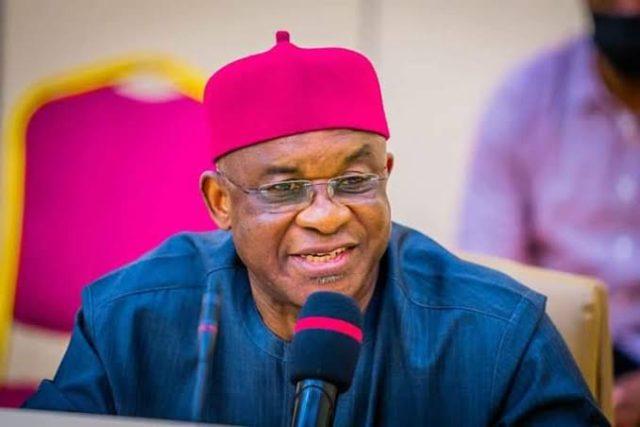A powerful coalition of Nigeria’s political opposition, comprising former governors, ministers, and top lawmakers, has unveiled the African Democratic Congress (ADC) as its new platform to challenge President Bola Ahmed Tinubu in the 2027 presidential election.
The unveiling ceremony took place Wednesday at the Shehu Musa Yar’Adua Centre in Abuja, drawing a formidable lineup of political veterans and key figures from across Nigeria’s political spectrum.
Among those present were former Attorney-General of the Federation, Abubakar Malami; former APC National Chairman, John Odigie-Oyegun; and Senators Ireti Kingibe and Victor Umeh, representing the FCT and Anambra Central, respectively.
Also in attendance were former Governors Jibrilla Bindow (Adamawa), Emeka Ihedioha (Imo), Rotimi Amaechi (Rivers), and Aminu Tambuwal (Sokoto), signaling a deepening national spread of the coalition effort.
Notably, former Vice President Atiku Abubakar, former Anambra Governor and 2023 presidential candidate Peter Obi, and ex-Kaduna Governor Nasir El-Rufai were also spotted at the high-level event, reinforcing the cross-party weight behind the alliance.
The coalition, now formalized under the ADC banner, announced former Senate President David Mark as its Chairman and former Osun State Governor Rauf Aregbesola as Secretary, reflecting an intentional blend of North-South leadership.
David Mark’s formal defection from the Peoples Democratic Party (PDP) was made public in a statement dated June 27, where he cited persistent internal crises and irreconcilable divisions within the PDP as reasons for his exit.
Mark, who once led the 6th and 7th Senate, described his move to the new coalition as part of a “collective effort to rescue our nation and preserve our hard-earned democracy.”
In the statement, he lamented the PDP’s deterioration, accusing it of becoming a “shadow of its former self” and falling into public ridicule due to leadership failures and internal discord.
Once regarded as a stabilizing force within the PDP, Mark’s decision to not only leave but lead a new opposition alliance is a significant political realignment with national consequences.
The emergence of the ADC as a rallying point for opposition figures signals the beginning of what could become a viable third-force challenge to the ruling All Progressives Congress (APC) in 2027.
With heavyweight defectors from both PDP and APC, the coalition is positioning itself as a national unity movement rather than a partisan alternative.
Analysts say the group’s early consolidation under the ADC, two years ahead of the polls, suggests a strategic departure from the fragmented and last-minute coalitions of previous election cycles.
The choice of David Mark and Rauf Aregbesola to lead the coalition provides geographical and ideological balance, possibly aimed at broadening appeal across ethnic and religious divides.
With Atiku, Obi, El-Rufai, and Amaechi linked to the same political platform, even informally, it raises questions about who will eventually emerge as the consensus presidential candidate.
The early organization, depth of political experience, and wide geographical spread of this coalition may force both the APC and PDP to rethink their 2027 strategies.
If sustained, the ADC-led movement could reshape Nigeria’s political calculus and potentially break the decades-long two-party dominance at the federal level.
The coalition’s bold unveiling sends a clear message: the race for 2027 has already begun.
For advert placement and inquiries, publication of press releases, and news coverages, please call: Phone: 08052898434 Email: editor@eyereporters.com, click here to view the advert rates.



